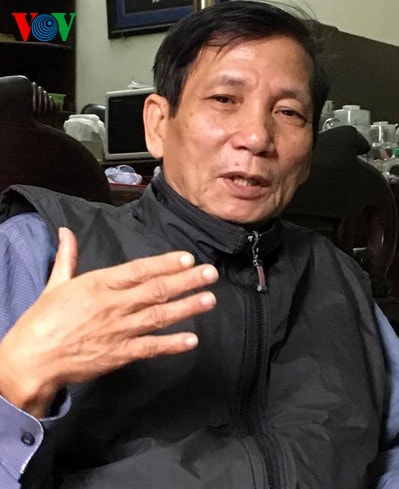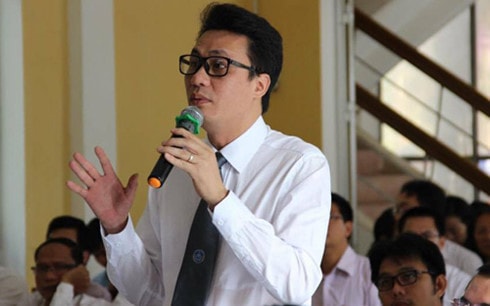Initiating a 'culture of resignation': Awakening self-esteem in officials
As long as the official is brave enough and can overcome his own interests, resignation is completely possible.
Responding to questions from National Assembly deputies at the second session of the 14th National Assembly, Prime Minister Nguyen Xuan Phuc affirmed that a "culture of resignation" is necessary for ineffective officials, not necessarily waiting until the end of their term or working age, especially for managers and leaders at all levels.
Resignation should be considered an indispensable need.
In the context where the head of the Government is showing his determination to build an honest, creative and active Government, it can be seen that "culture of resignation" is considered a necessary and indispensable factor.
Up to now, it seems that the culture of resignation in our country has been considered a phenomenon, an individual, and not considered an indispensable need or requirement. Dr. Nguyen Sy Dung, when he was Deputy Head of the National Assembly Office, once answered the press that, in the subsidized bureaucratic mechanism, people's opportunities in life are only concentrated in a row of seats, with more opportunities in higher seats. In the early stages of transition to a market mechanism, the opportunities brought by the market are not many, so titles still bring more opportunities. Therefore, people have to try to get a seat and stick to it, to have the benefits that follow.
The concept of “being an official” is considered the highest achievement of each individual, family, and clan. Titles often go hand in hand with power, often associated with benefits, salaries, privileges, and benefits. Therefore, if you resign, it means you will have nothing left. On the other hand, resigning is considered a very heavy task in Vietnam, not only heavy for the person resigning but also for their family and relatives.
Faced with the Prime Minister's determination to build an honest and action-oriented Government, people expect that, from the Prime Minister's statement on the culture of resignation, the head of the Government will initiate a truly people-oriented working style among cadres and leaders at all levels and sectors.
 |
| Mr. Do Van Lac. |
Mr. Do Van Lac, former Deputy Editor-in-Chief of Banking Magazine, said that the Prime Minister's statement can be considered a warning, a wake-up call for leaders at all levels and industry commanders to re-examine themselves and strive. An honest, creative, and active government cannot allow the existence of obscure individuals who do not bring benefits to the people.
“In order for the Prime Minister’s goal of building a creative government to be feasible, first of all, each leader must have self-respect and truly work for the people. In that apparatus, the head of the Government, the head of each agency, unit, and locality must clearly understand and have the most authentic assessments and comments about their subordinates, thereby publicly announcing their views and ranking their subordinates so that the people can understand,” Mr. Lac suggested.
Resignation will become a natural action when the Government is determined to do so, without necessarily following cumbersome procedures. In fact, the culture of resignation belongs to the ethical category, demonstrating the self-respect of each individual in dealing with incidents. “The official must have enough courage to overcome himself before the benefits that come from his position and authority. An official who is truly for the people only needs a resignation letter, giving up his position to more capable and suitable officials, and the resignation is completely possible. The important thing is that the leader must be honest,” Mr. Lac emphasized.
Can create a legal corridor for "culture of resignation"
From a legal perspective, lawyer Nguyen Van Quynh (Hung Yen Law Firm, Hanoi Bar Association) said that in reality, it is not possible to dismiss a number of cadres who work ineffectively, do not complete their tasks, are weak in capacity, have poor moral qualities, have low credibility, etc.; and these cadres do not ask for leave or resign because the legal corridor regarding rights has not been specified by law.
 |
| Lawyer Nguyen Van Quynh (Hung Yen Law Firm, Hanoi Bar Association). |
To effectively arrange human resources to help the apparatus operate smoothly, it is necessary to plan to reform the current civil service regime by signing labor contracts, and be ready to dismiss officials who work ineffectively, do not complete their tasks, are weak in capacity, and have poor moral qualities. It is necessary to learn and apply the experiences of developed countries in recruiting, appointing, and using labor, so that civil servants are responsible for their work and for society and the country.
Resignation is a manifestation of self-respect, high culture, and belongs more to the category of ethics than the law. We should form such an ethical system rather than regulating matters that belong to the scope of ethics by law. People resign to accept responsibility, so that their conscience is not troubled; they resign because they feel they should have done better.
However, when the officials are too influenced by their interests that they forget their self-respect, then there needs to be legal "sanctions". If we need to do something to help purify the above subjects, creating a legal corridor for "resignation culture" is still possible.
“But more importantly, in my opinion, is the Government’s determination and greater efforts in handling macro-strategic issues, as well as issues and incidents arising in society. Timely action and fair and lawful handling will bring people confidence in a constructive government,” said lawyer Nguyen Van Quynh./.
According to VOV
| RELATED NEWS |
|---|


